Luckily for expats planning on moving to Portugal, the country offers a high-quality healthcare system that makes sexual health services readily available for anyone. As a result, those looking to set up their new life there can rest assured that they will be in safe hands. That said, moving abroad comes with its challenges, and learning how to navigate the various healthcare services on offer is certainly one of them.
Thankfully, though, this article offers detailed information about sexual and reproductive health in Portugal, including the following:
- Attitudes towards sex and sexuality in Portugal
- Accessing sexual health services in Portugal
- Insurance for sexual and reproductive healthcare
- Contraception in Portugal
- Pregnancy and childbirth in Portugal
- Abortion in Portugal
- STIs and STDs in Portugal
- Erectile dysfunction treatment
- Feminine hygiene products
- Cancer screenings in Portugal
- Services dealing with sexual problems
- Services in Portugal dealing with sexual abuse and assault
- Young people’s sexual health in Portugal
- LGBT+ sexual health in Portugal
- Useful resources
Cigna Global
Enjoy peace of mind while living in Portugal with Cigna Global’s long-term international health insurance plans (12+ months). Get tailored coverage, direct billing with many providers, complex case management, and global care on demand, with access to a network of 1.5+ million doctors, specialists, and therapists.
Attitudes towards sex and sexuality in Portugal
While Portugal is generally a fairly conservative nation, women tend to be quite upfront and honest about sex, despite their prudent, Catholic upbringing. Given that they are comfortable expressing their feelings, there is less stigma attached to intimacy than in other European cultures.

Interestingly, Portugal has one of the lowest marriage rates in Europe, with roughly 3.4 marriages per 1,000 inhabitants, and this number is declining. Most births (56%) in 2019 also occurred outside of marriage, indicating a significant shift towards sex and relationships beyond traditional marriage.
Similarly, attitudes towards same-sex relationships are becoming increasingly progressive in the country, with 4,551 same-sex couples tying the knot since gay marriage became legal in 2010.
Accessing sexual health services in Portugal
The standards of the Portuguese healthcare system are high, with the nation ranking 13th on the 2018 Euro Health Consumer Index. The country has three coexisting systems for healthcare, as follows:
- The National Health Service (NHS) or Servico Nacional de Saude (SNS)
- Special social health insurance schemes (health subsystems): occupation-based schemes used in the public sector and certain professions such as police, military, and banking
- Voluntary private health insurance
All legal residents, including expats, have access to the SNS, free of charge. However, in recent years, charges have been introduced for many services.

The Portuguese Ministry of Health (Ministério de Saúde) manages the SNS, which covers primary and secondary healthcare services. The SNS covers all of mainland Portugal, however, the Azores and Madeira have their own healthcare systems. A central administration manages this while five regional health administrations (North, Central, Lisbon, Tagus Valley, Alentejo, and Algarve) deliver it
Notably, non-residents and temporary visitors in Portugal require private health insurance. Visitors from the European Union (EU), European Economic Area (EEA), or Switzerland, on the other hand, can access public healthcare using their European Health Insurance Card (EHIC).
Meanwhile, those from non-EU countries with reciprocal healthcare agreements with Portugal can access public healthcare for free or at a reduced cost. These countries include Andorra, Brazil, Cabo Verde, and Morocco.
In Portugal, general practitioners (GPs), rather than clinic specialists, carry out STD and STI testing alongside other sexual health services. Notably, there is only one sexual health clinic in the country, which is located in Lisbon’s Centro de Saúde da Lapa.
Should you prefer an online, video, or phone consultation, you can ask your medical practitioner. Otherwise, telehealth platforms such as Mobi Doctor offer these services quickly for a fee.
Insurance for sexual and reproductive healthcare
Overall, public health insurance is good, albeit inconsistent, in Portugal. That said, the SNS covers various initiatives and healthcare centers, which include many complicated and sometimes contradictory schemes. However, unfortunately, waiting times can be long for sexual health services due to over-subscription.
For this reason, among others, some expats choose to take out a private health insurance plan. And fortunately, there are a number of private health insurance providers operating in Portugal, including:
You can also compare private health insurance providers in Portugal and get free quotes by visiting our special health insurance quotes page.
Contraception in Portugal
According to a 2015 UN report, 74.3% of Portuguese women use contraception, which is widely available across the country in its various forms. The most common contraceptive methods prescribed by the SNS include:
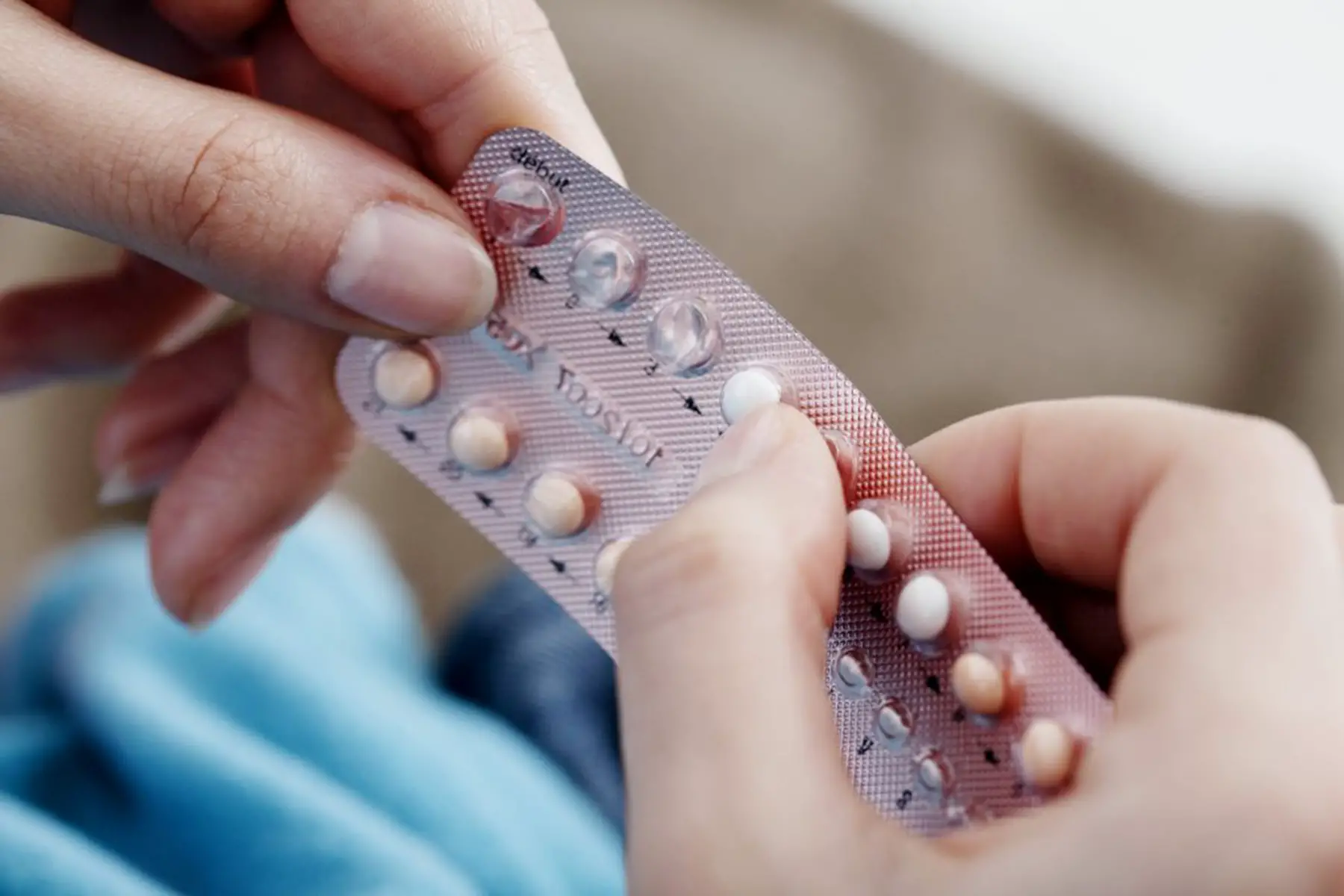
Most forms of birth control require a prescription, which you can get from your GP or a gynecologist. However, condoms are available in pharmacies. Although there is only one sexual health clinic in Portugal, most health centers and some hospitals offer planned parenthood consultations. During these, medical health practitioners provide reproductive health and birth control information.
You can also access the Family Planning Association, which offers services to help people make safe and informed choices about their sexual and reproductive health.
Emergency contraception
Emergency contraception, or the morning-after pill, is available over-the-counter in pharmacies in Portugal. You can use this search tool to find a 24-hour pharmacy near you. While you don’t need a prescription to buy emergency contraception, you won’t find it on the shelves and will have to request it from the pharmacist.
Depending on the brand, a pill costs between €12 and €25. However, you can also get the morning-after pill free of charge and without a prescription from family planning centers, primary health care services, and hospitals associated with the Servico Nacional de Saude (SNS).
Pregnancy and childbirth in Portugal
In Portugal, women who contribute to social security will receive maternity care free of charge or at a reduced rate. Expectant mothers can choose to have their babies in a public or private hospital ward. Upon arrival at a medical facility, they can also choose to have a midwife present during the delivery. Fortunately, the SNS covers maternity care and you can pick whichever public hospital you like.
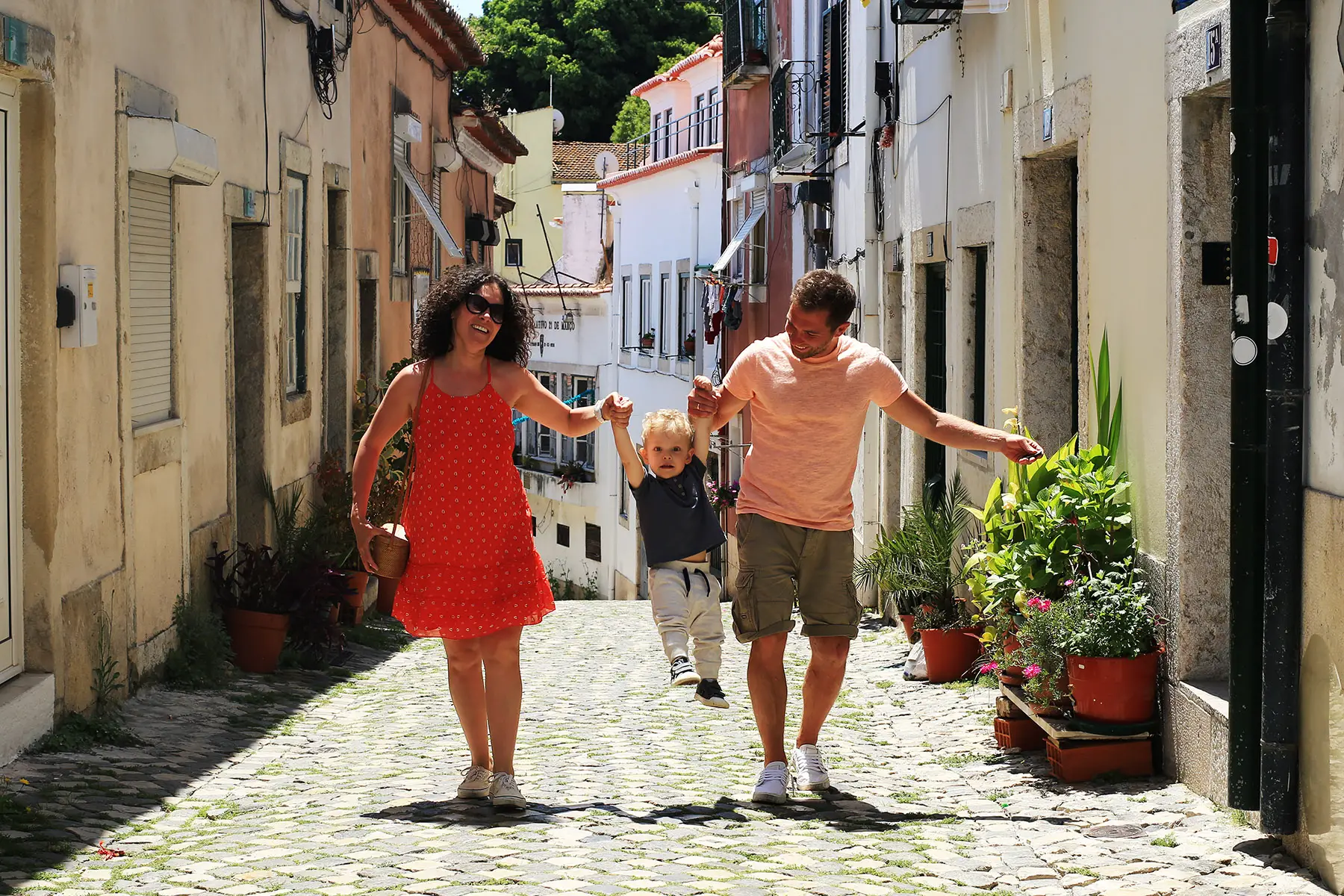
However, if you have private health insurance, you can access the following private maternity hospitals in Portugal:
- Hospital CUF Descobertas SA
- Centro Hospitalar de Lisboa
- Hospital da Cruz Vermelha Portuguesa
- Hospital da Luz SA
Public healthcare is a good option for many expectant mothers, as it covers essential care such as doctor visits, hospital treatment, medical emergencies, and maternity care. That said, some still choose to arrange supplementary health insurance which also covers vision and dental care.
Abortion in Portugal
Abortion in the first ten weeks of pregnancy has been legal in Portugal since 2007. However, you need to have a consultation with a GP, followed by a three-day period of reflection prior to the procedure. Both public and private health insurance cover the costs associated with abortion.
STIs and STDs in Portugal
The most common STIs in Portugal are HPV, chlamydia, syphilis, gonorrhea, herpes, and trichomoniasis. Screenings for sexually transmitted infections (STIs) and sexually transmitted diseases (STDs) are easily accessible via the SNS or private sector. You can make an appointment for testing with your GP. However, you will get your results quicker if you visit a private clinic.
Non-profit organizations in Portugal also provide free screenings for common STIs and STDs. For example, Rede de Rastreio, Positivo, and Abraço test for HIV, hepatitis B and C, and syphilis. While these non-profits predominantly offer services for vulnerable groups, anyone can access their services.
HIV/AIDS in Portugal
Portugal has one of the highest annual rates of new HIV/AIDS diagnoses in the European Union. Overall, the annual cost of HIV treatment in Portugal is €14,000 per patient. Patients stay in the hospital on average 23 days, and virus-related hospitalizations cost the state around €825 per day.
Notably, the World Health Organization (WHO) honored the Portuguese Community Screening Network for its good practices in HIV prevention. HIV testing is free for everyone, regardless of their migration status. The country takes a human rights approach to HIV with community-based care models and progressive drug policies. For example, 35,000 people use life-saving antiretroviral medication, which is widely accessible.
Rede de Rastreio provides a list of centers with HIV testing, and Abraço offers HIV testing in Lisbon, Porto, and Aveiro. Alternatively, you can do a self-test at home with a finger prick, which is available at Portuguese pharmacies for around €20 to €25.
Erectile dysfunction treatment
In Portugal, around 50% of men aged between 40 and 70 experience some form of erectile dysfunction. There are several treatment options, ranging from lifestyle changes to medical interventions, such as:
- Doctors may suggest quitting smoking, regular exercise, and reducing stress levels
- Patients can take prescription medication either orally or injected directly into the penis
- A man can use a vacuum device to create an erection or prostheses can be surgically implanted into the penis
- Psychotherapy can reduce stress and anxiety during sex
Feminine hygiene products
Sanitary pads and tampons (with and without applicators) are widely available in Portuguese supermarkets and pharmacies. The country’s Bloco de Esquerda party proposed making feminine hygiene products free of charge to fight menstrual poverty. However, this has yet to be realized.

In the meantime, these products have a 6% VAT rate, which is the same rate as essential goods such as bread, milk, meat, vegetables, and medicine. One box containing 32 tampons costs around €3.61 in Lisbon.
Cancer screenings in Portugal
Cancer is the second most common cause of death in Portugal, and 24.3% of these deaths are caused by malignant neoplasms (abnormal growth of tissue). In 2014, 26,220 people died of cancer, of which 59.7% were men. Each year, Portugal spends €867 million on cancer treatment, which represents 5.5% of the country’s total health expenditure or €84 per capita. Antineoplastic drugs (which block the formation of growths that may become cancer) account for 31.5% of this cost.
The Portuguese League Against Cancer (Liga Portuguesa contra o Cancro) has many health education and cancer prevention campaigns which target tobacco consumers and young people. The League also operates the National Breast Cancer Screening Program (PDF) and organizes the European Week Against Cancer fundraisers.
As every patient faces unique circumstances, treatment and care will differ from one patient to another. You will also need to consult your doctor to determine whether the services you access are covered by insurance or require out-of-pocket expenses. In some cases, you will need a referral to see a specialist, and other times, you can be treated by your GP.
How to get screened for cervical cancer
Around 865 women are diagnosed with cervical cancer in Portugal each year, and around 379 die from the disease. Cervical cancer is the eighth most prevalent cancer among Portuguese women and the third most common cancer among women aged 15 to 44. In 2008, the HPV quadrivalent vaccine became a part of Portugal’s national vaccination program, protecting nearly 90% of women. The vaccine has also helped to reduce the incidence of persistent HPV infection in women aged 16 to 23 by 96%.
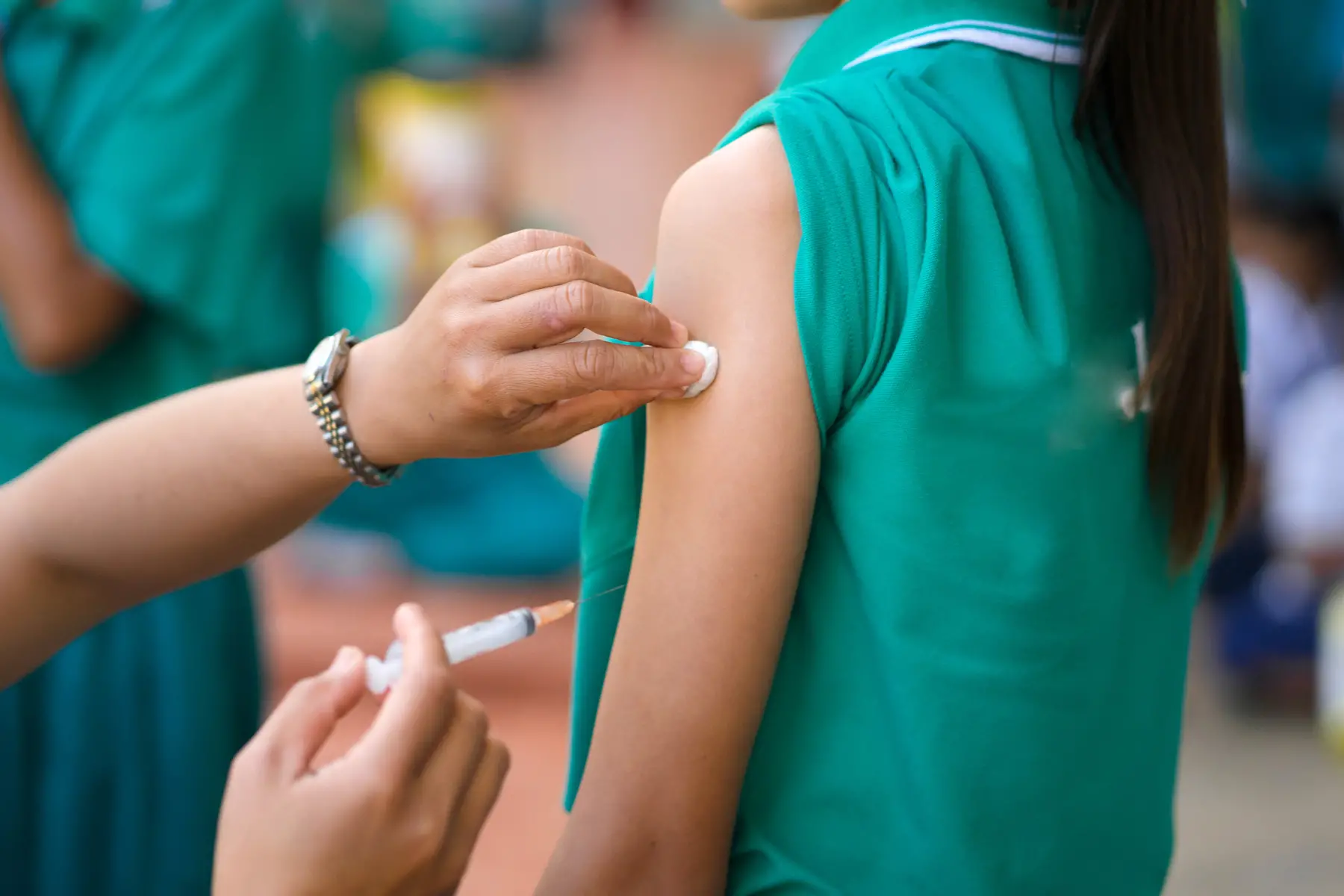
Doctors recommend regular cervical cancer screenings (pap smears) for women aged 25 to 64 and those with genetic risk factors. Depending on your health and genetic predisposition, you should get a voluntary check-up every one to three years. Given that Portugal’s healthcare systems are complex, with treatment involving different resources, it’s hard to calculate costs.
How to get screened for breast cancer
Breast cancer is the most common type of cancer in Portugal and the second leading cause of death in women. Around 7,000 new cases are detected and 1,800 women die from the disease each year. In 2014, 1,664 women died of breast cancer, which amounted to 3.2% of all female deaths in the country. In the same year, breast cancer cost Portugal €146.1 million, which amounted to roughly 1.4% of the nation’s overall health expenditures. The overall economic burden of breast cancer totaled €309 million, which represents around 0.18% of the Portuguese GDP.

In Portugal, women aged 45 to 69 should get screened for breast cancer. The Breast Cancer Screening Program covers the central and northern regions of the country and Alentejo. It is also being extended to Lisbon and the Vale do Tejo regions.
Women aged 50 to 69 who are registered at a health center will receive invitation letters to undergo a mammogram free of charge. If necessary, they will be invited for a clinical check-up following the screening. After that, some women will be referred to a hospital for a final diagnosis and subsequent treatment.
How to get screened for ovarian cancer
In Portugal, a woman will only be screened for ovarian cancer if she shows symptoms or has a family history and a genetic predisposition. In this case, her GP will do a screening, including:
- A physical examination and pelvic exam
- Cervical smear and lab tests
- Blood work
- Vaginal ultrasound
- Biopsy of any abnormalities
Ovarian cancer symptoms include:
- Pain in the pelvis and lower abdomen
- Persistent bloating
- Loss of appetite
- Irregular menstruation
- Fatigue
- Nausea
- Urgent and frequent urination
- Diarrhea
- Indigestion
- Heartburn
Your GP can provide insight into the associated costs and insurance coverage.
How to get screened for prostate cancer
In 2009, prostate cancer was the most common type of cancer among men in Portugal, with 5,433 patients representing 22.4% of overall cancer cases. As it is generally more prevalent in men aged 65 or older, doctors recommend prostate cancer screening for men aged 50 or older. However, because men of African descent or those with a family history of prostate cancer are more likely to develop the disease, their screening age is lowered to 40.

Prostate cancer symptoms include:
- A burning sensation during urination
- Challenges starting or stopping urination
- Blood in the semen or urine
- Pain during ejaculation
- Frequent urination at night
- Persisting back pain
There are two prostate cancer screenings. First, the prostate-specific antigen test (PSA) screens for high levels of PSA in the blood, a possible cancer marker. Second, the digital rectal exam involves a doctor inserting their fingers into the rectum to determine the size of the prostate gland. If there are any abnormalities, the doctor may recommend a biopsy.
You can set up a consultation with your GP to discuss screening options, the associated costs, and insurance coverage.
How to get screened for testicular cancer
Testicular cancer is rare and typically affects men under 50. Symptoms of the disease include:
- Swelling or the existence of a painless lump in the testicles
- Sharp pain or a dull ache in the scrotum or lower abdomen
- Breast enlargement
- Back pain
- Shortness of breath
- Coughing or coughing up blood
- A lump in the neck
During a physical examination, a doctor will look for signs of cancer in the testicles. If the exam shows abnormalities, more laboratory and imaging tests may confirm a diagnosis of testicular cancer. However, biopsies may spread cancer to the scrotum, so doctors do not readily recommend these.
You can discuss cancer screening, the associated costs, and insurance coverage with your doctor.
How to get screened for penile cancer
Globally, penile cancer is rare and develops in younger men. In Portugal, there are approximately 119 new cases of penile cancer and 34 deaths from the disease each year. Penile cancer is associated with HPV infection in 70% to 80% of cases, while specific genotypes may cause the others.
Worryingly, the prevalence of HPV in men could be higher than 50%. However, fortunately, the HPV vaccination in boys may prevent up to 90% of penile cancers.
Penile cancer symptoms include:
- A growth or sore that does not heal within four weeks
- A rash
- Bleeding from the penis or under the foreskin
- A smelly discharge
- Thickening or a change in color of the skin on the penis
Services dealing with sexual problems
Whether you are suffering from erectile dysfunction or vaginismus (painful intercourse), Portugal has numerous options available to address sexual health problems. You can consult a pharmacist at a local Farmacia (pharmacy) for general advice and over-the-counter medications. However, if you require further treatment, you should consult a gynecologist, urologist, or general practitioner (GP).
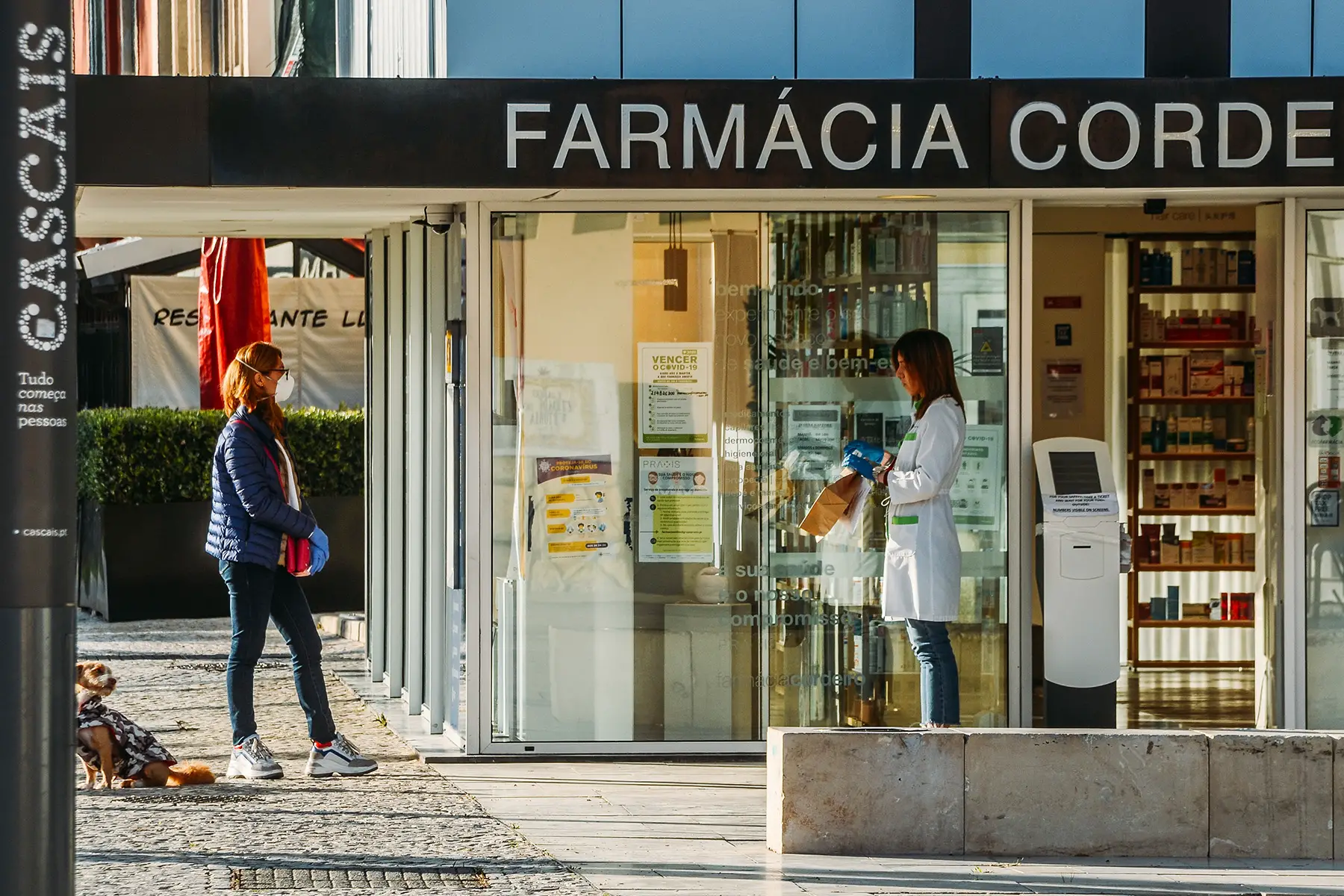
Sexual problems can be physical, psychological, or emotional, and can require counseling or sex therapy. With this in mind, there are multiple resources available. As such, the Portuguese Society of Clinical Sexology (Sociedade Portuguesa de Sexologia Clínica) lists public and private consultation options. Furthermore, a GP or gynecologist can refer you to the appropriate service. Overall, treatment costs will depend on your specific needs and insurance coverage.
Services in Portugal dealing with sexual abuse and assault
In 2019, Portugal expanded the legal definition of rape. The law focuses on the lack of consent rather than physical violence. Apoio à Vìtima (APAv) offers practical, psychological, and legal support to victims of all crimes, including sexual. All support is confidential and free of charge, and the service extends to the survivor’s close friends and family.
Survivors can call APAV’s support line, 116 006, on weekdays from 09:00 to 21:00. Furthermore, the organization has two shelters: one for victims of domestic violence and their children and another for victims of sex trafficking.
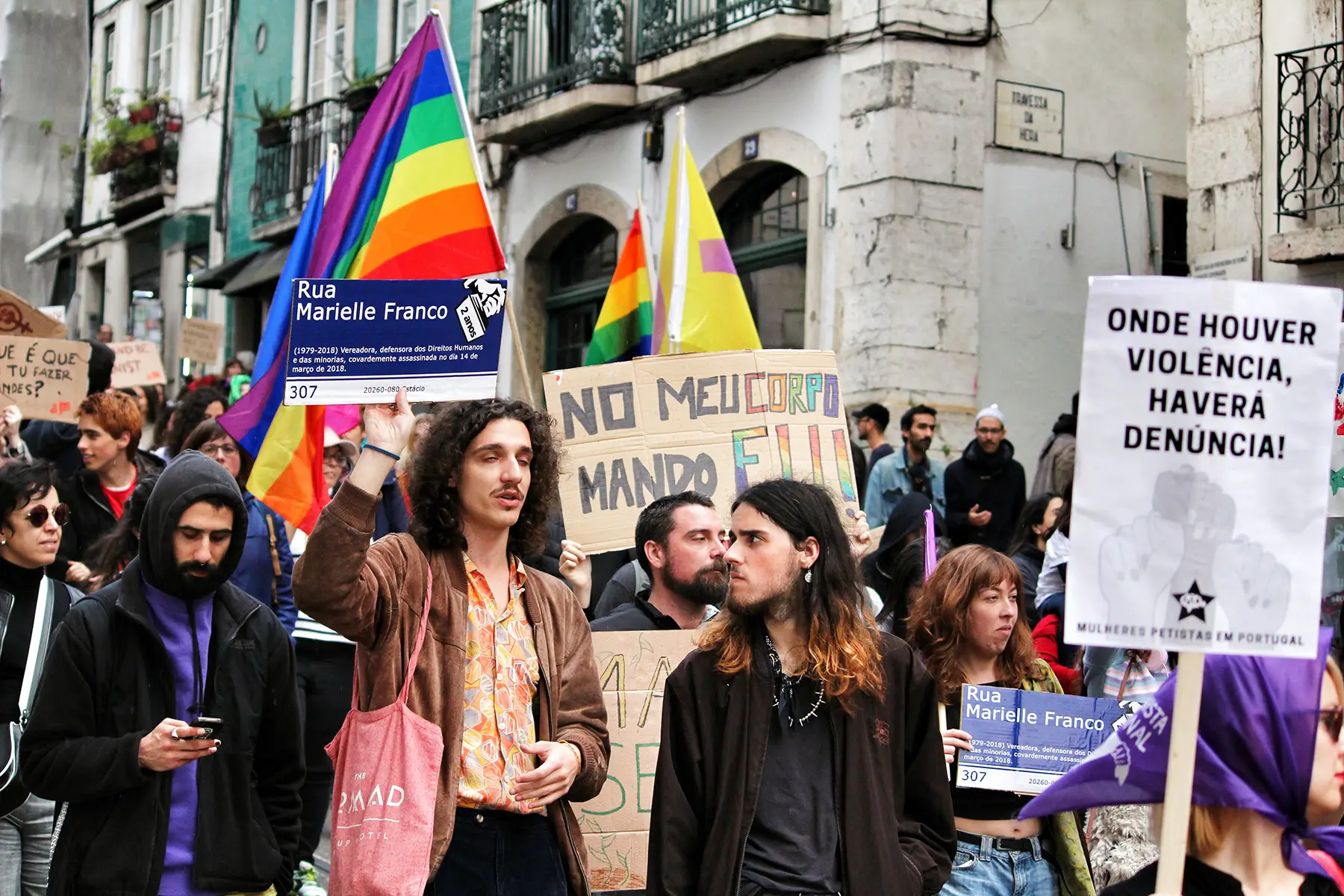
Portugal has several emergency numbers, but the quickest way to get help is to call the European emergency number on 112. However, if you have nowhere safe to stay, you can call 144, the National Social Emergency Line (Linha Nacional de Emergência Social – LNES). They will refer you to a homeless or emergency shelter. Alternatively, the police can take you to an emergency room to access healthcare, if needed.
Reporting sexual assault or abuse in Portugal
Support staff at APAV can accompany you through the process if you wish to report it. The organization makes the following recommendations if you have been sexually assaulted or abused:
- Call 112 if you need immediate medical attention
- If you wish to report it, which is entirely your choice, avoid:
- bathing
- showering
- going to the toilet
- Keep your clothes and any other objects involved in the assault unwashed in a paper bag for evidence
- Report it to the Judiciary Police (Polícia Judiciária); this unit has specially trained investigators to work with survivors of sexual crimes
- Next, you will need a physical examination. You can either go to a hospital or a medico-legal office of the National Institute of Forensic Medicine and Sciences (Instituto Nacional de Medicina Legal e Ciências Forenses – INMLCF). You can also report it directly to this unit before going to the police.
- Even if you don’t report it, it is still important to seek medical attention to treat any internal injuries, STDs or STIs, or prevent pregnancy
APAV also suggests having some form of ID on you when reporting. A list of available resources and contact information is available here.
Other useful services
You can also access the following services if you have experienced sexual violence:
- AMCV – Association of Women Against Violence: Call 21 380 21 65 or email [email protected]
- APAV – Portuguese Association for Victim Support: Call 116 006 or email [email protected]
- APF – Association for Family Planning: Call 21 385 39 93 or email [email protected]
- ILGA Portugal Association – Lesbian, Gay, Bisexual and Transgender Intervention: Call 218873918 / 969367005 or email: [email protected]
- O Nest Association: Call 213426949 / 963172593 / 911886265 or email: [email protected]
- UMAR – Alternative Women’s Union and Response: Call 21 294 21 98
Young people’s sexual health in Portugal
A study from 2014 showed that between 44% and 95% of Portuguese teenagers are sexually active, starting on average at around 15 or 16 years old. Apparently, their contraception of choice is condoms.

However, according to the study, only a third of Portuguese adolescents have visited a health facility about contraception and STIs. Furthermore, less than half of these teens have attended reproductive health classes. While the prevalence of STIs and STDs in young people is unknown, there are almost 15 babies born per 1,000 girls aged 15 to 19.
Sex education
Despite young people being sexually active, school curriculums in Portugal generally lack a sex education program. As a result, critics argue that the lack of mandated sex education reform has left schools with outdated perspectives on gender, sexuality, and procreation. A proposed project aims to modernize curriculums to include gender equality and the LGBT+ community.
Sexual health service for youth in Portugal
Because youth sexual services are only available in approximately half of the health centers in Portugal, young people face challenges when it comes to accessing family planning consultations. Furthermore, schools provide little information about contraception and STIs. However, the National Health Service provides contraception (i.e., the birth control pill) without a prescription.
LGBT+ sexual health in Portugal
Same-sex relationships in Portugal
Same-sex marriage has been legal in Portugal since 2010. Gay couples have the same rights as their heterosexual counterparts when it comes to marriage, visas, inheritance, adoption, and fertility treatments.

Portugal was named one of the safest travel destinations for gay people in 2019. Even so, discrimination and homophobia still persist in society. However, the government has adopted measures and trained police to protect LGBT+ citizens from discrimination, harassment, and violence on the basis of gender and sexual orientation.
Sexual health for LGBT+ in Portugal
Unfortunately, a greater cultural competence is required to adequately address sexual health care for the LGBT+ community in Portugal. For instance, many women’s healthcare providers lack the specific knowledge and skills to address the specific sexual and reproductive needs of lesbian and bisexual women. Furthermore, Portuguese health providers lack an understanding of gender fluidity and sexual diversity in sexual healthcare. Due to discrimination, general health services are also sometimes delayed or denied.
Useful resources
- Ministério da Saúde – the Portuguese Ministry of Health website
- Servico Nacional de Saude (SNS) – the Portuguese national health service website
- SNS24 – the online health portal to access national health services
- Portal do Cidadao – a citizens’ portal with details on healthcare
- Seguranca Social – the Portuguese Social Security website
- Centro de Saúde da Lapa – the only sexual health clinic in Portugal
- CheckpointLX – a Lisbon-based sexual health service for gay men






